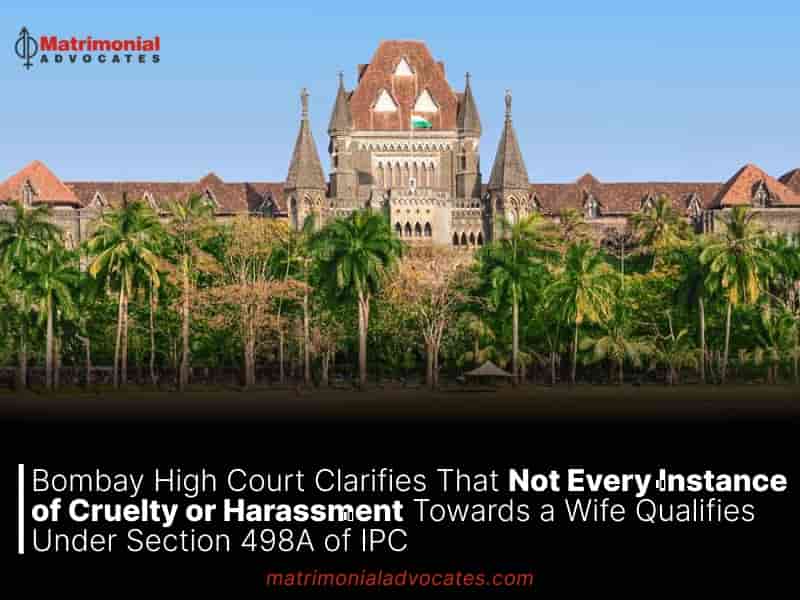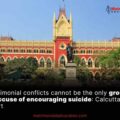
On Monday, September 23, the Bombay High Court overturned the conviction of a husband found guilty of abetting his wife’s suicide through torture, asserting that Section 498A of the Indian Penal Code (IPC) does not encompass every case of harassment or cruelty.
Justice Sanjay Mehare, presiding as a single judge in Aurangabad, highlighted that in order to achieve a conviction under Section 498A, the prosecution is required to present evidence of ‘continuous’ harassment.
“Section 498A of the IPC does not attract every harassment or every type of cruelty. The prosecution has to establish that the beating and harassment of the deceased were with a view to force her to commit suicide or to fulfil the illegal demand of dowry. Mere harassment for dowry or causing grave injury to her life or limb or health is not cruelty, as explained in Section 498-A of IPC. To constitute the offence under this Section, it is to be established that the harassment was caused by coercing the woman to meet unlawful demands. To hold the accused guilty for the offence punishable under Section 498A of the IPC, there should be a case of continuous state of affairs of torture by one to another,” the judge said.
The allegations in this case suggested that the accused husband subjected his late wife to cruelty through persistent demands for money to buy gold jewelry. She endured both physical and emotional abuse, as her parents could not fulfill the accused’s financial requests due to their difficult circumstances. The prosecution presented evidence that the husband would come to take her back when she stayed with her parents, promising not to mistreat her, which compelled her to return and live with him.
The bench observed that there was no clear and trustworthy evidence regarding her final visit to her parents.
“The record reveals that there was no continuous state of affairs of torture by the husband to the deceased wife. It has been established that her parents-in-law were residing separately. The counsel for the petitioner succeeded in pointing out that there was no sufficient evidence to establish that the petitioner/accused willfully drove the deceased by his conduct to commit suicide nor the harassment as alleged prove that she was harassed with a view to coerce her or to her relatives to meet any unlawful demand of golden ornaments. There were general allegations of cruelty to the deceased or the demand for ornaments,” the judge noted.
The accused’s defense claimed that he did not allow her to visit her parents’ home with her brother. The judge noted that this explanation appeared reasonable based on the evidence provided. As a result, the judge acquitted the husband of charges under Section 498A and Section 306 (abetment of suicide).
Background:
The bench was examining a criminal appeal submitted by a man challenging his conviction under Sections 498A and 306 of the IPC by a court in Aurangabad on April 28, 2004.
According to the prosecution, the accused husband harassed his wife by demanding gold jewelry from her parents, and when she was unable to fulfill these demands, he subjected her to physical and mental abuse. The accused, on the other hand, contended that his wife took the extreme step of ending her life due to her ‘depression’ stemming from her inability to conceive. He further claimed that on the day she committed suicide, she expressed a desire to visit her parental home with her brother, but he did not permit her to go, which led her to ingest pesticide in an attempt to take her life.
The bench noted that the woman died within two years of her marriage. It remarked that she had spent a significant amount of time living with her parents, alleging that her husband was demanding gold ornaments. She ultimately returned to live with him after he went to bring her back, having reportedly assured her parents that he would not mistreat her.
The judges pointed out that the allegations made by the wife’s parents against the husband were quite vague and generalized, which was insufficient to establish his guilt.





